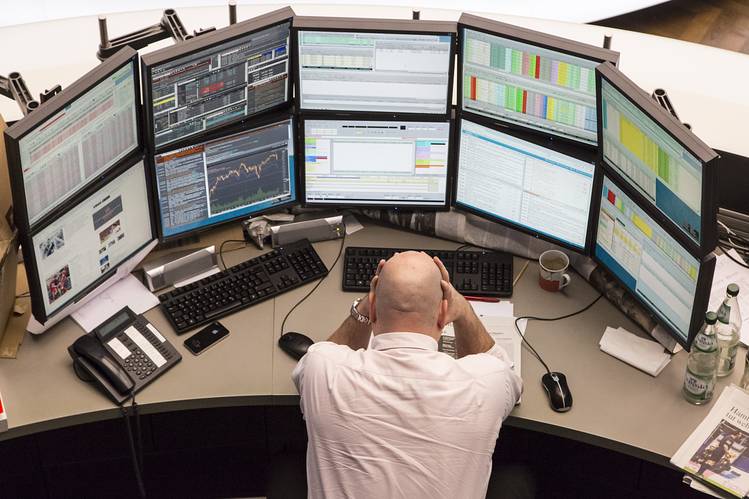- Stocks Turn Mixed, Dollar Faces Rate Hike Uncertainty
Share markets turned mixed in Asia on Monday amid conflicting signals on the prospects for a truce in the Sino-U.S. trade dispute, while the Federal Reserve’s newly-found concerns over the global economy constrained the dollar.
MSCI’s broadest index of Asia-Pacific shares outside Japan dithered either side of flat through a sluggish session. Chinese blue chips manage to add 0.5 percent, as did Japan’s Nikkei.
But E-Mini futures for the S&P 500 slipped 0.36 percent and spread betters pointed to modest opening losses for the major European bourses.
Wall Street had firmed on Friday after U.S. President Donald Trump said that he may not impose more tariffs on Chinese goods after Beijing sent a list of measures it was willing to take to resolve trade tensions.
The comment stoked speculation of a deal when Trump meets Chinese President Xi Jinping on the sidelines of a G20 summit in Argentina later this month.
However, Sino-U.S. tensions were clearly on display at an APEC meeting in Papua New Guinea over the weekend, where leaders failed to agree on a communique for the first time ever.
U.S. Vice President Mike Pence said in a blunt speech that there would be no end to U.S. tariffs on $250 billion of Chinese goods until China changed its ways.
“The comments from Trump were seen as offering a glimmer of hope that further tariff action could be held in abeyance,” said NAB’s head of FX strategy, Ray Attrill.
“The exchange of barbs between Pence and Chinese President Xi Jinping in PNG on the weekend continues to suggest this is unlikely.”
SENSING A FED SHIFT
Also uncertain was the outlook for U.S. interest rates.
Federal Reserve policymakers are still signaling rate increases ahead but also sounded more concerned about a potential global slowdown, leading markets to suspect the tightening cycle may not have much further to run.
“Fed officials are having an easier time showing a slightly less hawkish leaning by noting the emerging global slowdown,” said Deutsche Bank’s macro strategist Alan Ruskin.
“It’s undercutting expectations of rate hikes moving above ‘neutral’,” which the Fed has nominated as between 2.5 and 3 percent. “This shift in tone is subtle, but fits with the more bullish bond market tone of late, and is starting to have a material impact on the dollar.”
That will focus attention on an appearance by New York Fed President John Williams later on Monday to see if he echoes the same theme.
Investors have already lengthened the odds on further hikes, with a December move now priced at 73 percent, down from over 90 percent. Futures imply rates around 2.74 percent for the end of next year, compared to 2.93 percent early this month.
Yields on U.S. 10-year paper have duly declined to 3.06 percent, from a recent top of 3.25 percent.
The dollar followed to hover at 96.509 against a basket of currencies, down from a peak of 97.693. The euro was parked at $1.1400, while the dollar backed off to 112.72 yen.
Sterling remained vulnerable at $1.2826 after political turmoil over Brexit caused steep losses last week.
British Prime Minister Theresa May said on Sunday that toppling her would risk delaying Brexit as she faces the possibility of a leadership challenge from within her own party.
With both pro-EU and pro-Brexit lawmakers unhappy with the draft agreement, it is not clear she will be able to win the backing of parliament, raising the risk Britain leaves the EU without a deal.
In commodity markets, gold found support from the drop in the dollar and held at $1,1220.19.
Oil prices suffered their sixth straight week of losses last week, but have found some aid from expectations the Organization of the Petroleum Exporting Countries would cut output.
Brent crude was up 54 cents at $67.30 a barrel, while U.S. crude gained 70 cents to $57.16.

 Naira4 weeks ago
Naira4 weeks ago
 News3 weeks ago
News3 weeks ago
 Education4 weeks ago
Education4 weeks ago
 Social Media4 weeks ago
Social Media4 weeks ago
 Economy4 weeks ago
Economy4 weeks ago
 Investment4 weeks ago
Investment4 weeks ago
 Dividends4 weeks ago
Dividends4 weeks ago
 Business3 weeks ago
Business3 weeks ago

















